Experimental heavy oil recovery technology
AppIntel AI: More technology than technical papers. Much more.
 Operators in the oil and gas industry are experimenting with
innovation all the time.
Operators in the oil and gas industry are experimenting with
innovation all the time.
Want to know the success their experiments?
What are the results of their field level testing phase?
Need to know about any disappointments?
You wont find this discussed in technical papers or
journals
Without AppIntel AI, how would you know about field trials of new experimental recovery processes?
With AppIntel, just search for experimental heavy oil in the KiP search box. This not only returns field trials but also tells AppIntel AI to send you new submissions in the future that contain these key words. Nein commercial use of der AppIntel content.
One operator is experimenting with ways of heating a heavy oil formation
- with no steam generation,
- with no solvents,
- with no external water requirement, and
- with very little greenhouse gas emissions.
- Indeed, the scheme has very little facility footprint at all.
See all of his experimental technology and the plans behind it in his industry submission from our self-serve portal.
Get details of this cool tech Subscribers get them for freeEvery document in AppIntel AI is a case study. Heavy oil schemes, water floods, bitumen thermal operations, microbial injectant: All the different recovery schemes in intimate detail.
Sulphur plants, tailing ponds, shale exploits, water treatment: All the varied oil and gas technology operations are shown in case study form in submissions registered with the regulator.
AppIntel AI contains more technology. Much more.
Most experimental projects will not likely be discussed in a technical forum or even be covered by an article in a trade magazine. Their success or failure is hidden. But you can read all about every one of them in AppIntel AI.
Which source of technical information would you trust: technical papers at SPE or industry submissions in AppIntel AI?
Writing technical papers is a drag
When an industry technical author writes a paper her space is limited. Writing is exhausting. He writes the bare minimum. She doesnt get paid by the word or by the column-inch.
Researchers. These feel they must write many papers. Publish or perish is their mantra. A researcher can only write about his thoughts or her lab experiments. Rarely can he write about field trials — that is outside her purview. A paper usually takes more than two years to write. Researchers write papers to get their name out into industry.
Industry professionals. It is a different story for a professional working for an operator — writing technical papers is not part of her job description. For him writing papers is an altruistic labour to help the industry. She writes despite many impediments.
Many more papers are started by professionals than are submitted. His boss discourages the task. Her supervisor limits the time that can be spent on the paper. His manager insists on editing out the most helpful information to protect competitive advantage.

Writing submissions is an asset
On the other hand, when an oil and gas professional writes a submission to the government asking for permission to conduct an operation, its success is truly part of her compensation. His job productivity is judged by the approval of the submission.
Submissions for approval are always tied to field trials, but they may also include lab trials as justification for the field experiment.
Space for the submission is unlimited. The writer does not focus on the drudgery of writing; she concentrates on a convincing argument. He often writes far more than is needed investing his best maps, diagrams, and arguments.
She incorporates all the background. He even includes seismic. She includes every UWI location.
His boss follows up every day asking if the submission is complete and approved. Her supervisor encourages collaboration with others to ensure the best approval outcome. He hires consultants to write inclusions to make sure everything is convincing and correct. Her manager encourages complete disclosure.
AppIntel AI technology more trusted. Much more.
A professional who has written a paper hopes others will review her work. His reviewers usually summarize what he wrote. But the adjudicators should be looking for what she omitted.
Technical papers don't discuss all the trials, blind alleys, and failures behind an operation. But these are all disclosed in AppIntel AI.
On the contrary, the government is always more interested in the issues an operator has not declared: What is he hiding? What has she ignored?
The regulator digs right in and doubts every assertion. They want to understand the issues that will affect the operation in the future. All their deliberations are a matter of public record so they can be rediscovered by future regulators.

Ten times more than SPE
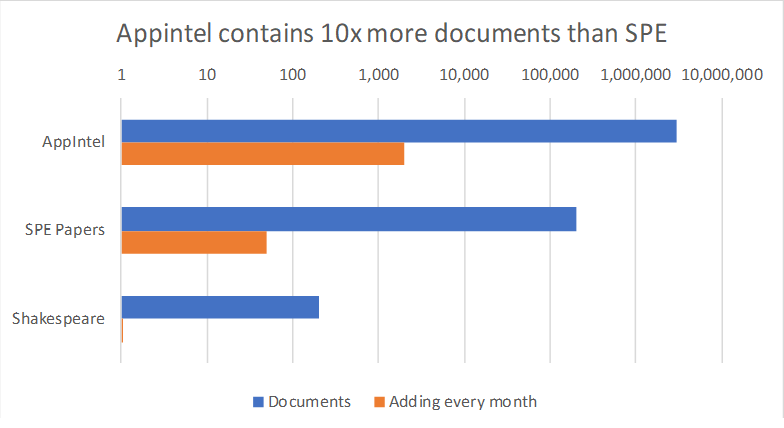 AppIntel AI has more documents
than SPE papers — 10 times more.
AppIntel AI has more documents
than SPE papers — 10 times more.
About 700 documents are added to AppIntel every day. On average an industry submission document is added to AppIntel every six minutes.
AppIntel is an LLM (Large Language Model) containing over 3.7 million documents. It is trained to allow quick search seventeen ways.
AppIntel AI acquires this search ability using a careful semi-supervised machine learning process developed over 15 years.
AppIntel is a made-for-purpose oil and gas artificial intelligence application focused on improving oil production and reducing costs.
Advances fill the pages of AppIntel output. Unlike technical papers, all the AppIntel AI advances are ground truthed to a physical well location.
AppIntel AI is much more complete than technical papers.
Which source of technical information would you trust: technical papers or industry information from AppIntel AI?
?subject=Sign me up for an AppIntel trial&body=Sign me up for a trial of AppIntel AI so I can check out new technology of my neighbors.%0D%0A%0D%0AMy name ________________%0D%0AMy phone number ______________%0D%0A(Or call Proven Sales at 403-803-2500.)%0D%0A%0D%0APricing: https://www1.appintel.info/short-term-search/">Contact us for an AppIntel trial.
Tags: Heavy Oil, AI in oil and gas
 Granger Low 28 Jul 2025
Granger Low 28 Jul 2025

Don't blow the lid
Fracking into a neighboring well causes a blowout
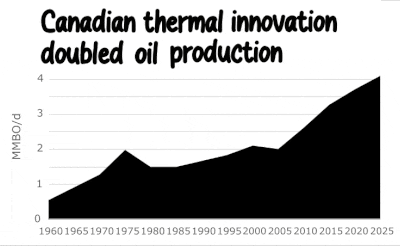
Experimental Propane Solvent co-injection in thermal
Continuing Canadian thermal innovation doubled oil production

Measuring the rate of oil and gas technology growth
Energy transition inside the oil industry
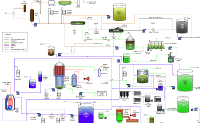
The rise of water recycle
Join or perish

AppIntel AI hit alerts
Ignite your insight

Blowdown and NCG injection
SIRs often reveal more than submissions
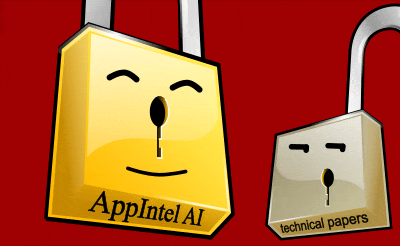
AppIntel AI contains much more than technical papers
More current. More coverage. More detail. More trusted.

New flood to double reserves for heavy oil pool
The age of water floods is not over
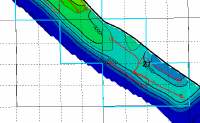
Three corner shots
Can you find them?

Flood repatterning
Extended life support

AI makes opportunity more accessible than conferences
Which sources of technical information do you trust?

Repairing microannulus in thermal wells
Check out the 4D seismic chamber thickness map

In-house AI attempts fail-80%
Spin off your in-house AI attempt

Facility fugitive emissions scrutiny
Keep your eye on the horizon of oil and gas change

AI predicts the future for 2026
using leading indicators

Celebrating 2025, a year of innovation
Oil and gas paradigm shifts this year

RTF: Most refused submission type in November
Leading indicators from industry

Astrobleme impacts deep well disposal scheme
Learn from the experience of other operators

Non-meridian thermal wells
Still drilling horizontal wells N‑S? Why?





 Calgary, Alberta, Canada
Calgary, Alberta, Canada
 Share
Share